County Lines: Why drug phenomenon has hit Wales so hard
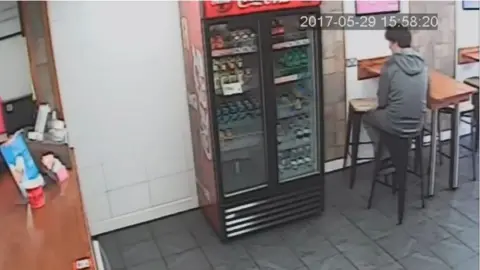 BBC
BBCThere is rising violence in towns across Wales as drug gangs from the UK's big cities fight for control of the market. BBC Wales Investigates has discovered there are now thought to be over 1,000 so-called County Lines drug networks across the UK - a four-fold increase in four years - recruiting children as young as 13. So why is Wales being hit so hard?
This report contains strong language

Matthew Cassidy's last meal was served to him early evening at a restaurant in Shotton, Flintshire.
He was 19 years old but as he left Wok & Go with another teenager he had dined with, he had less than an hour-and-a-half to live.
The final moments of his life were violent to say the least. A resident of a block of flats in nearby Connah's Quay, where Matthew was murdered, recalled hearing "horrifying screams".
Matthew, who had come to the area from his native Liverpool only the day before, was stabbed to death.
Of the nine wounds inflicted on him, one went through his heart.
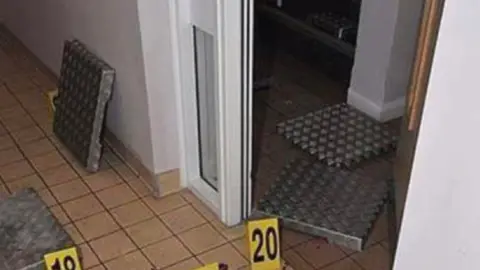
"What we know is that he struggled from that location, probably ran from his assailant, made it up to the first floor but has either fallen or been dragged backwards and his body was found on the landing," said Det Supt Iestyn Davies.
He was further stabbed with the same kitchen knife as he lay dying shortly before 20:00 BST on Sunday 29 May last year.
It was not long before the police investigation began piecing together the depressing background to Matthew Cassidy's death.
The end of his short life embodies a UK-wide national problem which has sprung up virtually "overnight" - a problem that has hit the region of north Wales particularly hard.
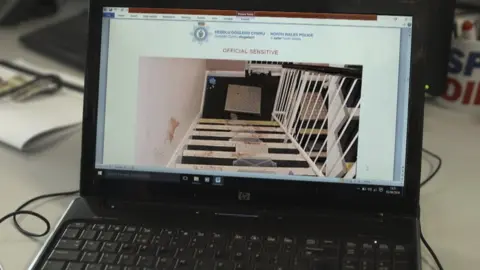
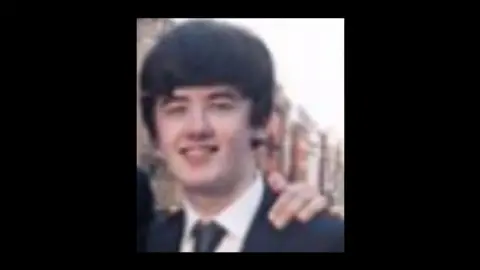
Trying to cope with it has changed the face of policing as North Wales Police is faced with the highest proportion of organised crime of all the four Welsh forces.
"It has become a national problem in the scheme of things almost overnight," said Tony Saggers, former head of drugs threat and intelligence at the National Crime Agency.
"It's a growing problem based upon the success of what is basically a very ruthless business model."
The astonishingly effective business model? County Lines.
Its sales reps? Children and young people hungry for money and a stake in society.
Urban gangs have found their traditional markets in big cities have become saturated and dangerous.
By expanding their business into the provinces - sending young people there to act as runners - they not only stand to make huge profits but have less resistance from local dealers and a lower risk of being known by police.
The National Crime Agency estimates half the communities targeted by County Lines are small coastal towns. With its proximity to Liverpool and Manchester, north Wales has found itself a prime target.
Children as young as 13 lured by the promise of "easy money" are groomed and trafficked out of major cities to the provinces or "counties".
Once in situ, they sell drugs via dedicated mobile phone numbers or "lines".
"This is how it works," explains DC Vicky Knight, based in the seaside town of Rhyl, Denbighshire.
"The drug runners arriving in small towns give customers an untraceable mobile phone number with its own brand name - this is the county line number.
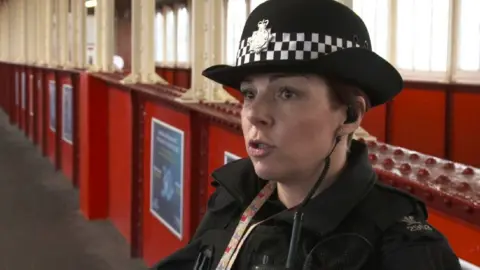
"The key is this mobile number is held back in the city by an anonymous dealer. They have no obvious contact with the drugs but have total control over what is being sold and when."
Like a legitimate business, subscribers will be sent texts offering special deals and fire sales.
It is lucrative to say the least. Phone lines can make up to £3,000 a day. And as with legitimate business, that level of wealth inevitably attracts competition.
But competition in the drugs trade inevitably means violence.
Police investigating the murder of Matthew Cassidy arrested David Woods, then also aged 19, and from Liverpool.
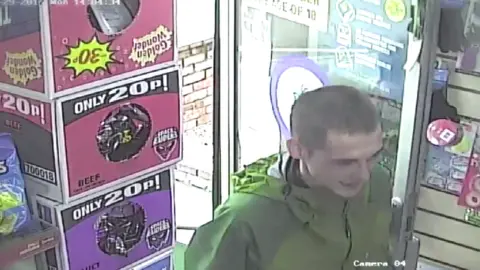
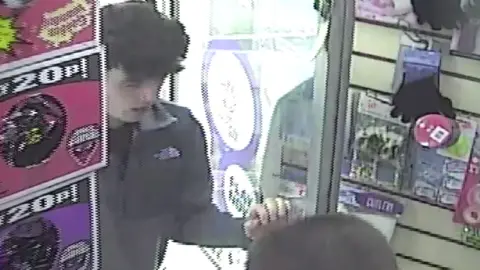
"Woods had been involved for six months, working for a specific gang supply chain from Liverpool city itself," explains Det Supt Davies.
"So, two different Liverpool gangs with different telephone lines in Connah's Quay. So Cassidy turns up the day before, believed to be sent by a rival gang. Clearly, David Woods wanted to protect his patch…
"We think Cassidy was employed to take over the drugs scene in Connah's Quay. Woods realised what was going on. He wasn't going to put up with anyone disturbing his business.
"My firm belief is that Woods went out to befriend Cassidy, to lure Cassidy to his death on that day."
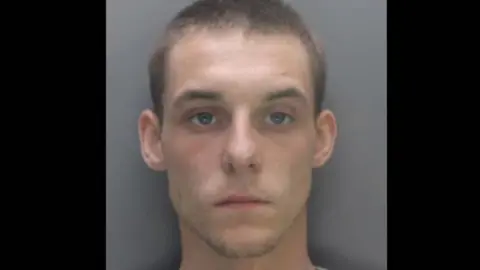
Some youngsters are caught before they can come to harm.
Kyle Graham, then 18, from Runcorn in Cheshire, had been dealing in Bangor, Gwynedd, for five days when he was arrested.
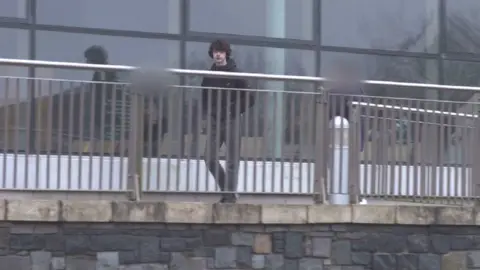
A court heard he owed £200 in a drug debt and was ordered to go to Bangor where for 13 hours a day he would sell drugs from a lane in the town where his supplies were constantly replenished.
Each day he would sell £1,000 worth of Class A drugs - primarily heroin and crack cocaine - but his cut amounted to just £50.
Pleading guilty, Graham was sentenced to three years.
But his conviction would have been of little concern to the drugs gang he worked for.
"The adults use them for anonymity and to minimize and to exclude the risks that come along with drug dealing," Tony Saggers said.
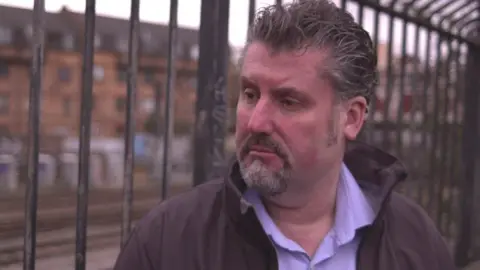
"If you look at it ruthlessly, they're looking to recruit more people than they need, ultimately to have people on standby to send into those towns so that if a couple of them get arrested, the city-based drug dealer can continue without any real impact by using the next two young people who are waiting to go into supply."
Drug runners or mules are recruited on the streets of the UK's big cities and joining a gang can seem like a tempting choice.
London-based gang members, who agreed to speak to BBC Wales Investigates anonymously, explained how they got involved.
"We've got no GCSEs, government's not giving us no job so we have to get it ourselves," one said.
"I got no college, no nothing, so I had to go to the 'elders' and they brought me in.
"They sent me up a few times, I made good money. Then I got arrested and then I came back and set up my own line and now it's running… made good money man."
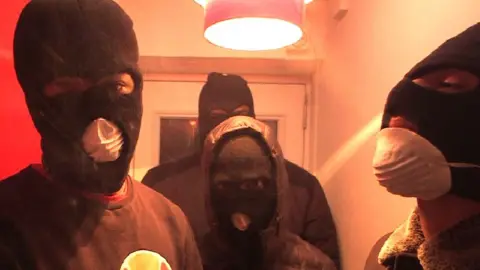
Recruiting runners to dispatch to the provinces is easy they said.
"They want in on it," one said. "They see us making the money. Why not? They want a job, simple.
"You know what? There are people in bad homes, those kids, we grab them quick, they have nothing to do. We give them a little job to do, send them off, make our money, make their money - everyone is eating right.
"The feds (police) won't even look at them. Sometimes walking down the road, the feds would have their eyes on us… but the young buck will be walking down and the feds won't take them on.
"So that's why it's good to send them out to do the job for us. Not like they're doing it for free. They are getting payment."
When asked if youngsters - who they arm with knives and who are routinely expected to hide drugs inside their bodies - do not deliver or lose drugs, the gang members reply: "They get touched."
What does that mean? "They get hurt."
When asked how you stop this from happening, one gang member replied: "Listen boss, if they don't want to see it happen then give us a fucking opportunity to work.
"Tell them why don't they raise funds for the fucking kids who don't have nothing. We are just helping out in our ways."
Jermaine Lawlor, now 26, was recruited by a gang in his native east London when he was just 13 years old.
"Usually the kids that didn't have their dads around were out on the streets selling drugs and trying to find a way out of the struggle," he said.
"It [the gang] was like a unit, like a support network because you were all coming from a common place… deprivation, poverty. It was about trying to find a way out of it, trying to make money together, hustling."
Now a youth worker, who runs Voice 4 Youth Against Violence, he said: "The kids, they're pawn pieces, used in a game of chess. And they're disposable."
"The grooming's so strong that the rewards seem much greater than the risks so it seems much better to stay away from your parents and to stay with this new 'family' that are going to look after you and provide for you…
"It's grooming. It's child trafficking. It's child exploitation…
"We need a new structure in our country, it's not working. The government's failing communities and that is as a result of financial opportunities.
"There's a lack of funding in these communities whether that's in housing, schools, local facilities, jobs… there's not enough opportunities."
The numbers of potential victims of trafficking and modern slavery have risen by a third. This increase is due in part to County Lines.
Other vulnerable members of society, such as existing drug addicts, fall victim to "cuckooing" where drug runners newly arrived in a town and without accommodation, commandeer their homes to use as a base.
Those who cannot find someone to cuckoo are expected to sleep rough.
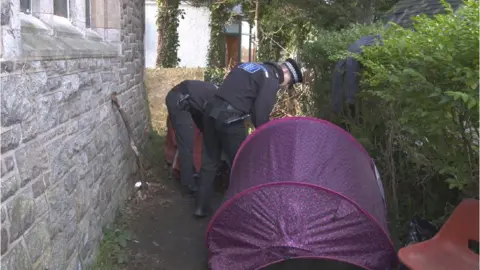 Ceri Jackson
Ceri JacksonAccording to the latest estimate there are now more than 1,000 County Line operations across the UK - a four-fold increase in just four years.
A new law that could stop children being used in drug dealing was used for the first time in the UK last month in Swansea - one of many town and cities in south Wales also hit by County Lines - when two dealers were convicted under modern slavery laws for trafficking.
The Home Office is convinced the new law will help crack down on the problem.
Tony Saggers is not so sure.
"It's a fine line," he said. "You certainly cannot say all County Line drug runners are victims. It then becomes a recruiting campaign.
"The drug dealers will say 'work for us and the police and authorities will protect you'.
"So the balance is to examine each situation on its merits. You have to get that right or you end up with a situation with those doing it feel there's a degree of impunity where they won't ever be prosecuted because they are victims and some of them are clearly not."
Last month the Home Office launched a £40m initiative against violent crime.
"We want this to stop," said Victoria Atkins, parliamentary under secretary of state at the Home Office.
"Everybody is agreed that we want this violence to stop and we want the cause of this violence to stop and so this is why we have launched the Serious Violence Strategy, which looks at the causes of the serious violence and we know that one of the major causes of violence is drugs and the drugs market.
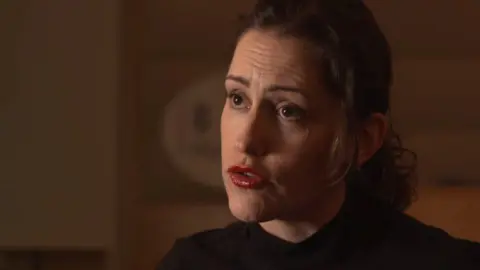
"In addition we've committed £11m specifically into an early intervention youth fund because we recognised that with some of these very vulnerable young people they have been let down pretty much by every adult in their lives."
But with hundreds of millions cut from youth services in recent years, for Dr Anthony Gunter who specialises in youth crime, it will take an awful lot more than that.
"If this is a national policy - £10m, £40m - you can't do anything," he said.
"Local authorities were having that for their work with young people in a year.
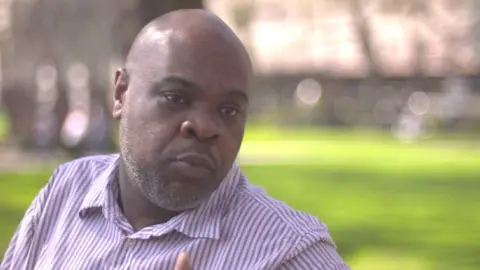
"I was a street-based youth worker for years, I used to work a lot with the young people you would talk about with County Lines and we couldn't always impact on all the young people but we were a positive force in their lives, we were someone they could talk to.
"Hopefully five years down the line our voices would be in their head to keep them on the right path. Those voices are now gone."
While some are critical about the falling number of police officers in recent years, the UK government says it is putting a further £450m into policing.
But some believe more ambition is needed to begin to tackle the UK's drug problem.
Paul Walmsley, who grew up on Liverpool's Norris Green estate, was a major drug smuggler and one of Britain's most wanted criminals.
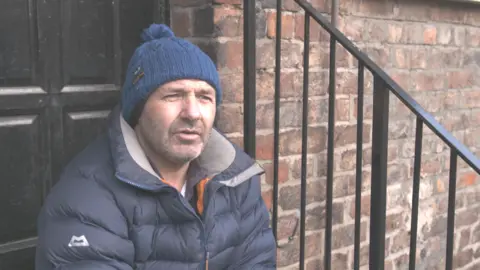
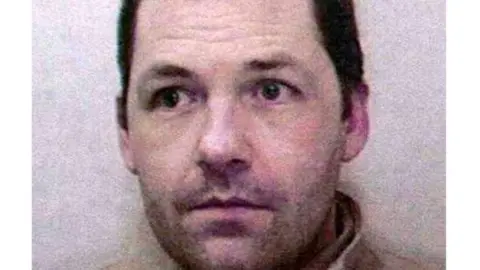
He handed himself into police and was given a 10-year jail sentence. He said he had grown tired of the life he was leading and wanted some integrity.
Now working with young people both in and out of mainstream education, he said: "I think I'm lucky to be alive so why wouldn't I want to help young people?
"I've got to try and give opportunities to young people because I can see where I've gone wrong.
"It's too attractive an option to go into the game.
"Maybe some of the older lads who are dealing drugs, who are making money, have nice clothes, can go to Mac-ies whenever they want… and that's what they want, they just want to fit in."
But he added: "Awareness is the key, making people aware of it. You're not going to stop it; it's still going to go on… make people aware that there is a way out of it. That's it, that's the key.
"But it needs to be in schools across the north west and most likely across Wales… some of the areas these kids are getting sent."
BBC Wales Investigates has been told public bodies in Wales are liaising on County Lines.
All 22 of Wales' councils were asked if they were running presentations on the issue in schools. A few had plans but so far only two councils have actually done it.
'Bold vision'
When asked to respond to this, the Welsh Local Government Association acknowledged County Lines was a problem but one "best tackled with other agencies" such as the police and charities.
"There should be a national youth provision, just like the education system," insists Dr Gunter.
"Whether it's linked to our education or health system it should be a commitment to say 'right, we are going to fund informal education' to get those harder to reach young people, to get them to realise their potential and reach their potential in society.
"But that takes commitment and a bold vision."
Tony Saggers believes the right action would not only benefit young victims caught up in County Lines but the society they are currently exploiting.
"I'm a great believer that most of those young people would not be in those situations if they had something better in life to do because they're showing entrepreneurial ability, they're resilient and robust," he said.
"They're intelligent young people often but just strayed from more positive paths. So they are already a victim in that regard."
And without that intervention he warns society will pay the ultimate price.
"It will become normal and that's the problem - we will accept it as normal," he said.
"And this, for me, in 30 years I've been involved in looking at the drugs market, this for me is the most exploitative, coercive way drugs have been supplied."
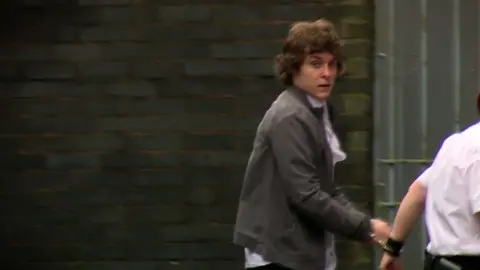
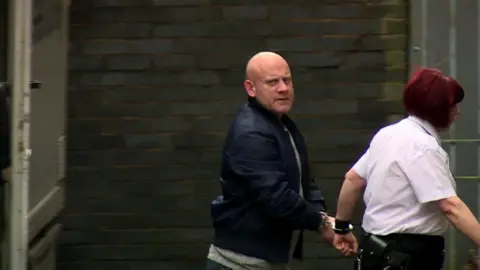
Last month David Woods, now 20, pleaded guilty to murdering Matthew Cassidy in a turf war over drugs.
His accomplice Leslie Baines, 48, was found guilty by a jury. Both men will be sentenced next week.
It was the second drugs gang execution-style murder in north Wales in six months.
It makes no difference to the drug gangs. Woods and Baines will have been replaced within hours of their arrest.
Gangsters controlling the County Lines across north Wales will of course be unmoved by Tony Saggers' warning; to them the violence that led to the death of Matthew Cassidy is already entirely normal.
* On Monday 21 May 2018, Woods and Baines were sentenced for 27 and 26 years respectively.
BBC Wales Investigates' Gangs, murders and teenage drug runners on iPlayer
